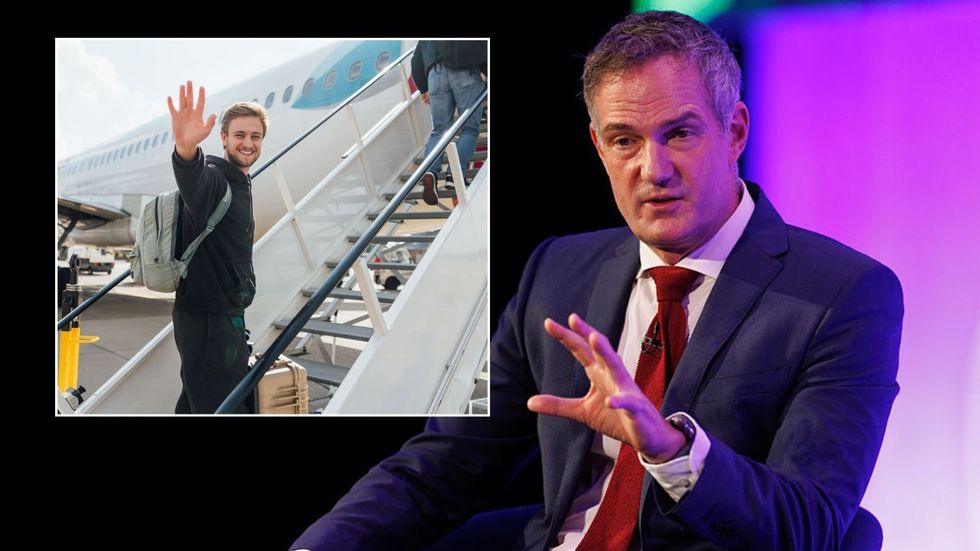Business Secretary Peter Kyle has admitted Labour’s tax policies have contributed to wealthy individuals leaving Britain.
Speaking to Sky News, he said affluent residents were departing as a result of recent tax measures implemented by the Government.
Data shows that 1,800 non-doms have exited the UK since their special status was revoked last year.
“I do, yes,” Mr Kyle said when asked whether he thinks the Government’s decisions were prompting wealthy people to move abroad.
“I’m not going to duck the fact that we have put up taxes and we’ve closed some of the loopholes for non-doms.”
While ministers had introduced these changes, Mr Kyle said it was clear some individuals now “feel the need to leave” due to decisions taken since Labour entered office.
His acknowledgement marks one of the clearest admissions from a senior minister about the consequences of the Government’s fiscal reforms for high-net-worth residents.
The recent departure of steel magnate Lakshmi Mittal to Switzerland after almost thirty years in Britain illustrates the trend.
Mr Mittal, whose family holds around 40 per cent of ArcelorMittal, is the latest high-profile figure to seek more favourable tax arrangements overseas.
He has long been known in the media as the “King of Steel”, and his relocation represents a notable loss within Britain’s corporate sphere.
His move follows similar decisions by other prominent entrepreneurs, including Revolut founder Nik Storonsky and technology executive Herman Narula, whose firm is valued at £2.5billion.

Mr Kyle said he was concerned by Mr Mittal’s exit, stating that he worried “whenever somebody feels they have to leave the UK in order to succeed”.
The Business Secretary said the issue was not confined to billionaires. “What I don’t want to do is, as a country, just focus just on the billionaires because there are other people that have needed to leave,” he said.
He pointed to a growing challenge in Britain’s start-up environment. “There are people starting businesses that have gone to America — actually in their droves — because they haven’t had the funding that they need in this country to succeed,” he said.
Mr Kyle said the Government recognised the problem and was taking steps to address it.
LATEST DEVELOPMENTS
- Millions exposed to tax raid on savings as £516bn in ‘hard-earned cash’ at risk
- Business leaders beg Rachel Reeves to avoid ‘death by a thousand taxes’ ahead of Budget
- Pension hack could ‘boost’ YOUR retirement savings by £201k and ‘reduce’ stealth tax

He said ministers were “fundamentally stopping the need for” such departures by recapitalising markets and increasing support for early-stage companies, including “spin-outs, start-ups, those scale-up companies.”
He defended Labour’s wider approach, saying the Government was seeking to attract skilled international workers.
“We’ve set up a global talent task force. We have set up a global talent visa,” he said. “We are making it easier for people to come here who have high talents.”
Mr Kyle acknowledged part of the shift was driven by changes in the tax regime.
“Now, some people are going to leave because they were here, because of the way that the old non-dom system worked,” he said.
However, he argued that Britain continued to draw new arrivals.
“There are other people who are coming to this country because of the excitement that’s in our economy at the moment, including the fact we are investing in AI,” he said.
He added: “So lots of people are coming here because of the new excitement in our country, but I accept because of some of the decisions we’ve made, like closing those non-dom tax loopholes, some people feel the need to leave.”
Fresh data has highlighted the scale of British emigration. Updated Office for National Statistics (ONS) figures show 257,000 British nationals left the country last year, far exceeding the previous estimate of 77,000.

The revised methodology reveals that between late 2021 and late 2024 an extra 344,000 Britons emigrated beyond earlier projections.
Karl Williams, from the Centre for Policy Studies, described the new figures as evidence of “an alarming brain drain, with net emigration of British nationals both much higher than previously thought, and accelerating”.
The emergence of the new data comes at a sensitive moment for the Government, just days before Chancellor Rachel Reeves delivers her Budget.
Ms Reeves is expected to introduce significant tax rises to address a multi-billion-pound gap in the public finances.
Our Standards:
The GB News Editorial Charter







Follow